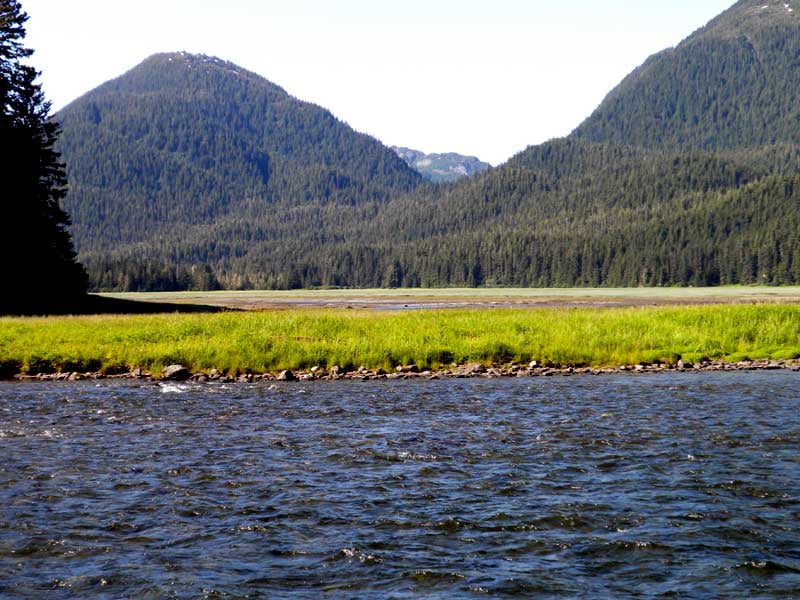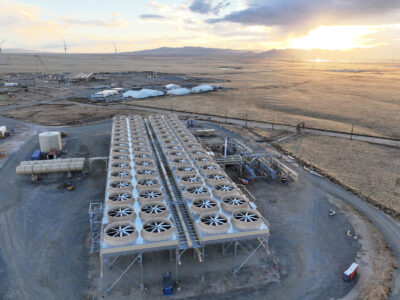“Alaska and its people are a hallmark of resourcefulness, resilience and can-do spirit. Our communities know better than most what it means to build, innovate and power our lives in some of the earth’s harshest and most challenging conditions. Energy development in Alaska isn’t just about economics — it‘s about survival, our success and a prosperous future,” Duff Mitchell, managing director of Juneau Hydropower, Inc. and vice chairman of the board of directors of the Alaska Energy Authority, wrote. “Right now, decisions are being made in Washington, D.C. that will shape Alaska’s energy future and security for generations to come,” the former lieutenant colonel in the Alaska Army National Guard explained in an op-ed published in the Anchorage Daily News.
Mitchell described Alaska’s unique energy landscape: “We are a young state that is poor in electrical energy infrastructure. We don’t have the luxury of plugging into a national grid or importing cheap energy from neighboring states. We produce what we consume and fully utilize what we develop.” According to the U.S. Energy Information Administration, the state’s per capita energy consumption is the highest in the country, stemming from a small population facing brutal winters. He elaborated, “In our state, energy policy isn’t theoretical. It‘s pragmatic and practical. It‘s the difference between affordable power and energy poverty. It‘s the difference between opportunity and prosperity or stagnation.”
Clean energy is the answer, Mitchell posited, “In many rural and coastal communities, the most cost-effective path forward is clean, local, renewable energy produced in Alaska. This is a bicameral, bi-partisan, state, federal and local ‘yes’ issue we can all agree on.”
Mitchell is one of the Alaskans leading the race toward clean energy. His company wants to spend $170 million to build a dam, power plant, battery storage system, and more than 40 miles of transmission lines at Sweetheart Lake, 33 miles south of Juneau, where Mitchell grew up and currently resides. Although the plan has been in development for over a decade, Juneau Hydropower was finally able to apply this past November following years of reviews and studies by numerous agencies and departments.
The 19.8 MW Sweetheart Lake Hydroelectric Facility would increase the region’s electrical generation by 25%, and the storage hydropower would supply Juneau with power at times of most significant demand, enhancing energy security. The facility would also provide energy to Kensington, an off-grid gold mine 45 miles north of Juneau that relies on imported diesel. The project could support Native corporation Goldbelt, Inc. in its effort to electrify a ferry terminal at Cascade Point, part of a larger local trend.
Brian Holst, executive director of the Juneau Economic Development Council (JEDC), wrote to the Regulatory Commission of Alaska to support the project: “JEDC sees positive economic potential from the proposed project during the development phase, as well as long-term benefits from its implementation. The development of JHI’s utility will create new opportunities for local apprentices and tradesmen, including construction contractors and electricians, protect existing jobs, and preserve our tax base… Access to utility services in previously unserved areas will open up usable land, allowing for the construction of much-needed housing and infrastructure and contributing to an increased property tax base. The proposed Sweetheart Lake Hydroelectric Facility can positively contribute to the well-being and future growth of our community.”
The Sweetheart Lake Hydroelectric Facility would also provide Alaskans with lower cost energy and positively change how the community heats its buildings, Juneau Hydropower explained, “Juneau has the opportunity to lead the nation in seawater district heating that uses our local waters to heat our homes and businesses with clean, renewable sustainable heat…forever.”

Photo Courtesy Juneau Hydropower
However, clean energy projects like this are often economically feasible because of federal funding and energy tax credits. Mitchell argued, “These aren’t distant technologies — they are energy systems already lowering energy costs and creating jobs in some of the most remote parts of the country.” Unfortunately, the U.S. House recently narrowly passed a reconciliation bill that takes a sledgehammer to these vital energy incentives.
In its entirety, the op-ed is an argument for preserving the tax credits. Mitchell wrote, “Maintaining a stable, predictable federal energy policy and credits is essential to keeping our progress and prosperity on track… Repealing or significantly altering these incentives would create uncertainty for ongoing efforts and could jeopardize critical funding streams that organizations like the Alaska Energy Authority, local utilities and energy developers depend on. Without these resources, progress on affordable, long-term energy solutions for Alaska’s communities is at risk.” On the other hand, “preserving and expanding energy tax credits for Alaska’s energy resources will help ensure that both Alaska and America are energy secure.”
Mitchell also thanked Alaska’s leaders for supporting clean energy thus far: “Sens. Murkowski and Sullivan have long understood this reality and have introduced, passed and secured several pieces of energy legislation to help Alaska. Their leadership has been essential in ensuring that Alaska’s voice is heard and felt in Washington.”
In another op-ed published in the Anchorage Daily News in 2023, Mitchell highlighted Senator Lisa Murkowski’s (R-AK) contributions: “Her instrumental role on the passage of both the Energy Act of 2020 and the bipartisan infrastructure bill, as well as her outsized influence in areas of hydropower policy, highlight her commitment to bringing our nation’s energy infrastructure into the 21st Century. Her work includes broadening and funding Alaska’s spectrum of energy technologies, from microgrid technology, expanded transmission lines, new electric vehicle deployment and investments in renewables like wind, solar and geothermal to cutting-edge advanced and safe nuclear deployment.”
In a social media post responding to the 2023 op-ed, Sen. Murkowski wrote, “In Alaska, we’ve shown that you can take a holistic approach to energy innovation while still being a responsible steward of our environment. Thank you, Duff Mitchell, for this thoughtful look at how AK is setting the standard for energy solutions.”
Mitchell urged Alaska’s senators to save the tax credits that have already done so much for Alaskan residents, workers, and businesses: “Progress is being made. But our work is not finished, and we require an Alaskan brand of tenacity to complete what we have started.”





